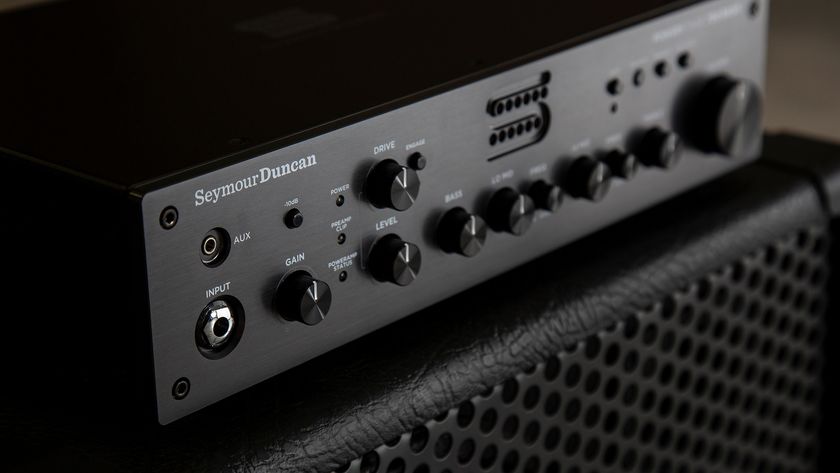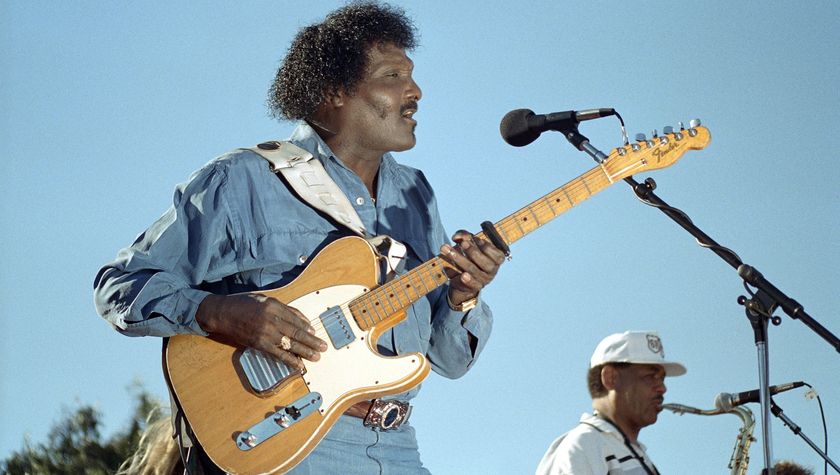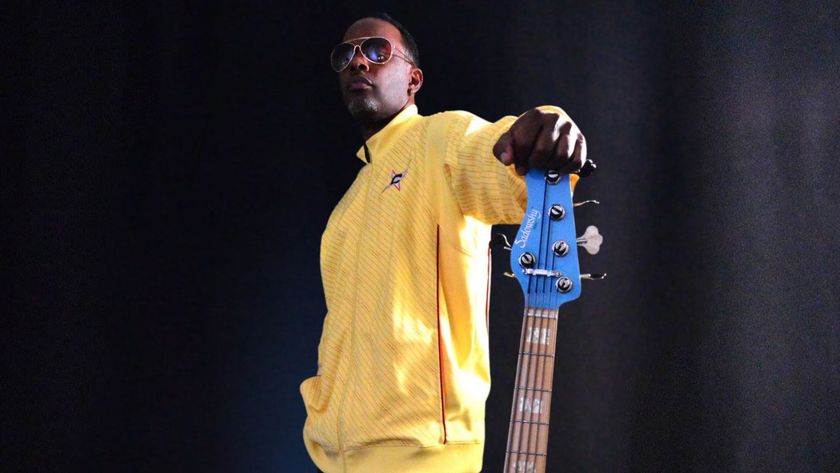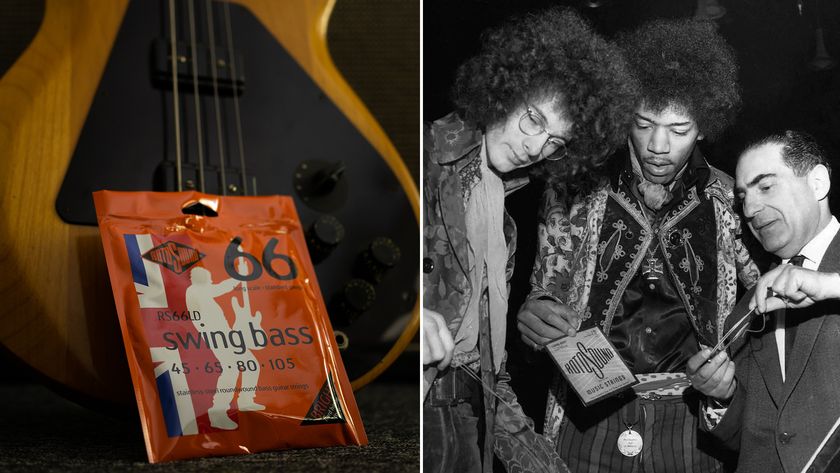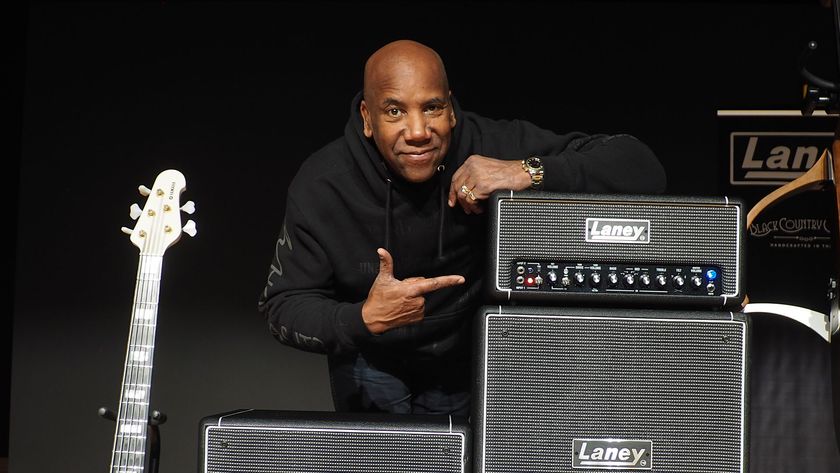Luna Li: “When I got the J Mascis Squier Jazzmaster, it felt like the first time I fell in love with a guitar”
The 25-year-old indie-rocker waxes lyrical about the Dinosaur Jr. player's budget Fender, and discusses how a background in violin and harp helped create her debut album, Duality
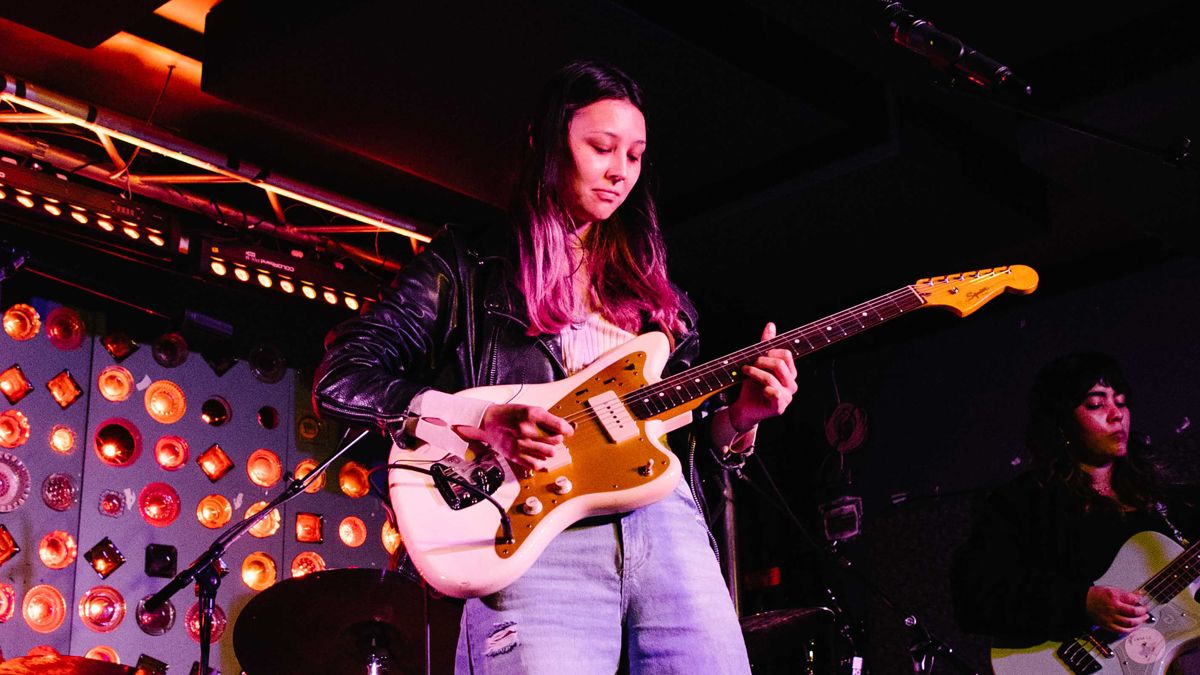
Like her namesake of the moon, Luna Li is an artist with a striking polarity. The songwriter straddled her dual nationality as an Asian growing up in Toronto, despite Canada being recognized as one of the most diverse in the world. Similarly, her music-making blends a classical background (both her parents are co-directors at a Music Conservatory) and newfound indie leanings.
But if Hannah Bussiere Kim, the 25-year-old behind the performance persona, struggled to find her place in the past, this debut record as Luna Li finally sees her finding her stride.
During the pandemic, Bussiere Kim began performing self-care instrumentals to her 60k-strong Instagram following. These tracks became last year’s jams EP – a compilation of fan-favorite audio loops that have already amassed over two-million plays on Spotify. So, when it comes to sitting down with her debut, Duality, there’s a welcome sense of familiarity.
Fragments of her social snippets appear reimagined into full-blown band scores; the online cast of rotating instruments forge together to honor that longstanding duplexity. Tremolo-tinged strums dance between heavenly harps in a cosmic chorus (Afterglow), while machine drums sidle up against a string quartet and a hair-raising lead line in former single, Alone But Not Lonely.
With her full-length finally out in the world, we caught up with the singer-songwriter to hear more about finger dexterity on the fretboard, jostling a harp into the tour van and the joy of the J Mascis Jazzmaster.
The title of your debut record, Duality, represents your dual heritage and the balancing act of growing up in Toronto. How has your understanding of your culture shifted and informed your songwriting?
“There were a lot of people on the music scene in Toronto, but it was predominantly men playing, and not a whole lot of Asian people or people of color. I didn't really see myself represented.
Get The Pick Newsletter
All the latest guitar news, interviews, lessons, reviews, deals and more, direct to your inbox!
“Especially starting out, my Korean culture was something that I rejected and didn't incorporate into my music, because it didn't feel like something that fit. Getting older, I realized how big of a part of me that is and how I want to honor my mixed cultures.”
You were led to the guitar through a more classical route studying at your mom’s music school, starting on piano, then violin and, more recently, the harp. How did the skills you developed on other instruments influence your playing style?
“I didn't start playing the harp until a few years ago but I started guitar when I was 12 years old. I had already been playing violin and the piano at that time. I was very focused on doing classical music and exams, and it was very rigid. I wanted something that could be a little bit more fun.
When I started playing guitar, I already had the finger dexterity from the violin. Immediately I was able to play solos
“My first guitar was acoustic and I started learning some chords, but it was so much easier because of the background that I had. I already had the finger dexterity, especially from the violin. Immediately I was able to play solos because my fingers were already used to that type of movement.
“Being able to understand the chords, theory and harmony made it so much easier. A couple of years later, I got an electric guitar and the idea started forming in my head that I eventually wanted to play in a band.”
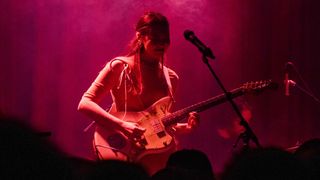
You produce all your songs yourself as well. Can you share some of the key equipment you use to create and compose from home?
When I got the J Mascis Jazzmaster, it felt like the first time that I fell in love with a guitar. I've never felt so comfortable on a guitar before
“I have my [Squier] J Mascis Jazzmaster. It was pretty much my first real electric guitar. When I got the J Mascis Jazzmaster, it felt like the first time that I fell in love with a specific guitar. I was like, 'This is my guitar.' I still haven't gotten another guitar that I play as much as I do that one, because I love it so much. I've never felt so comfortable on a guitar before. I feel like I can play my best on it.
“And I have a Danelectro 59[X12] 12-string. I wanted one because I used a bunch of 12-strings on my album in the studio. My producer had a double-neck 12-string there. Then I saw this Danelectro in a music shop near my grandparents' cottage one Christmas.
“I also have the Daisy Rock butterfly guitar which is fun to play. It's obviously on the cheaper end, but people love it when I pull it out at shows. It's got a nice clean full sound. Then I have a couple of acoustics: a nylon-string and a regular steel-string acoustic.”
Despite just releasing your debut, you’ve already racked up the accolades, appearing as one of NME's Top 100 Emerging Artists in 2022 and receiving a personal invite as tour support for Japanese Breakfast last autumn. What was that experience like after two years of not performing live?
“It was incredible. Going back to talking about heritage, [Michelle Zauner, Japanese Breakfast leader] was one of the very first musicians I ever felt represented by, as she's also half-Korean. I saw her play in 2018 and I unexpectedly felt so emotional at this show because I felt like it was the first time I saw myself represented on stage.
“[She was] someone who was doing exactly what I wanted to be doing and she was playing a Jazzmaster, too! It was incredible to go on tour with them.”
You’ve continued to share the spotlight with a raft of incredible women songwriters on this new record, specifically bedroom pop singers Jay Som and Beabadoobee. How did those collaborations happen?
“I'm a big fan of both of them and I just reached out to them cold. I DM'd them on Instagram to see if they wanted to be a part of [the record] and they were both down to do it, which was really surprising. I didn't think that my random message would actually get through.
“I love what they added to the album. I sent them the songs and they sent back their parts, and it was the most exciting feeling to click on the song and get to hear it through with their new parts added. It brought the songs to a new level.”
When the pandemic began, you started self-recording instrumental interludes as a radical form of care. How does the songwriting process begin for you?
”I start with keys, piano, or maybe a drumbeat. But the piano was my very first instrument, so I feel the most versatile on it in terms of creating different chord progressions. Also, with a MIDI keyboard, you can create so many different sounds. Then I'll usually use the guitar to compose more melodic stuff, some lead lines, or emphasize the chords that I've written.
”I normally use Logic [Pro X] and I'm recording as I go. With the MIDI keyboards, I have a bunch of plugins with different types of keyboards and different sounds, so I have it all in the box.”
How have you gone about translating the incredible production sounds of the record into a live setting?
”We definitely were playing several tracks already from the album on that tour, so lots of people got a sneak peek. But we've filled out the setlist on this tour. I'm bringing my harp for the first time on the road and playing a few new tracks that we've never done live before. The van is packed to the brim!”
- Duality is out now via In Real Life.
Cheri Amour is a writer, editor and broadcaster intent on amplifying the voices of women and non-binary artists in print, online and on air. During her twenties, she played lead guitar in a touring two-piece, sharing the stage with The Slits and John Peel-approved punks The Nightingales. Formerly Deputy Editor at TGA Magazine, Cheri headed up its Tech section pouring over pedals with everyone to indie icon Debbie Smith (Echobelly/Curve) to multi-instrumentalist Katie Harkin (Sleater Kinney/Waxahatchee/Wye Oak). She's currently working on an upcoming 33 1/3 book on the unassuming influence of South Bronx sister troupe ESG, out in Spring 2023.
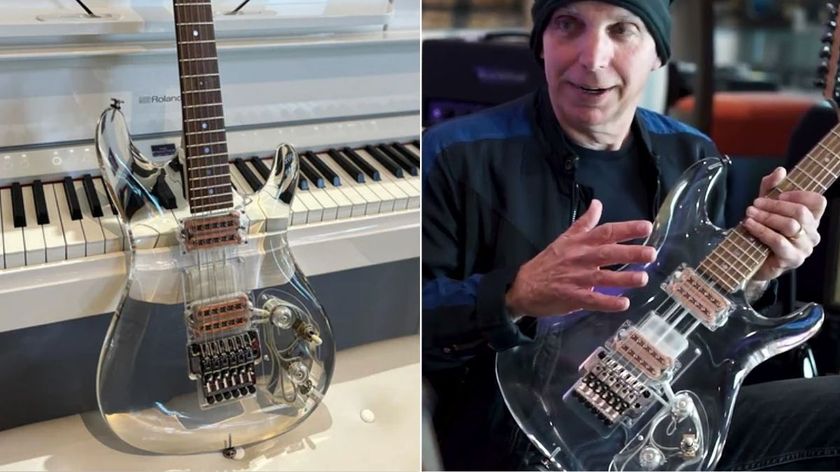
“When I saw it, I couldn’t believe how cool it was”: Joe Satriani is selling one of his rarest guitars – an ultra-ambitious Ibanez Y2K Crystal Planet prototype
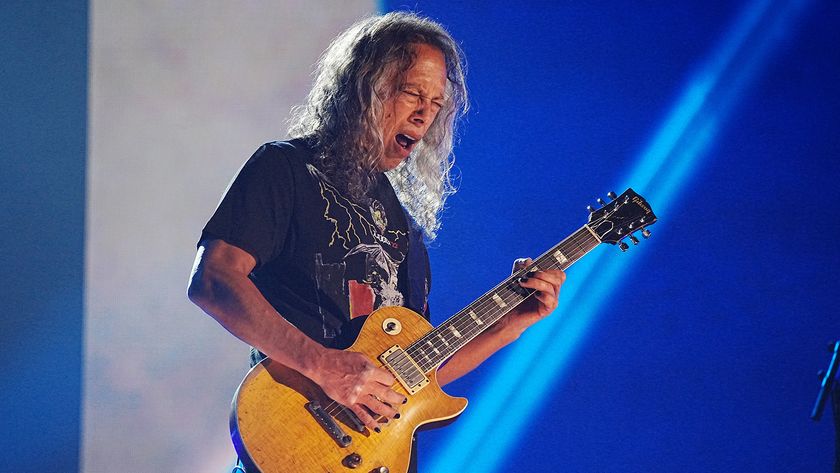
“They’re basically Les Paul copies, let’s be frank. It’s a Les Paul-style guitar and I already have amazing Les Pauls”: Kirk Hammett owns over 100 guitars but none of them are PRS. He explains why




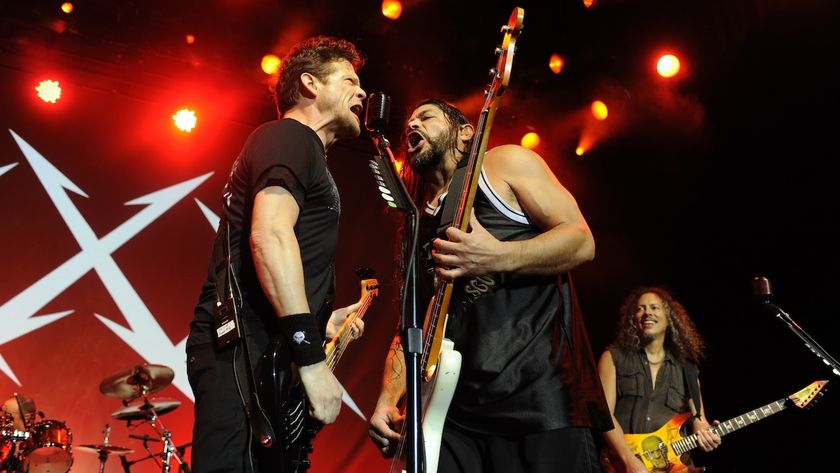
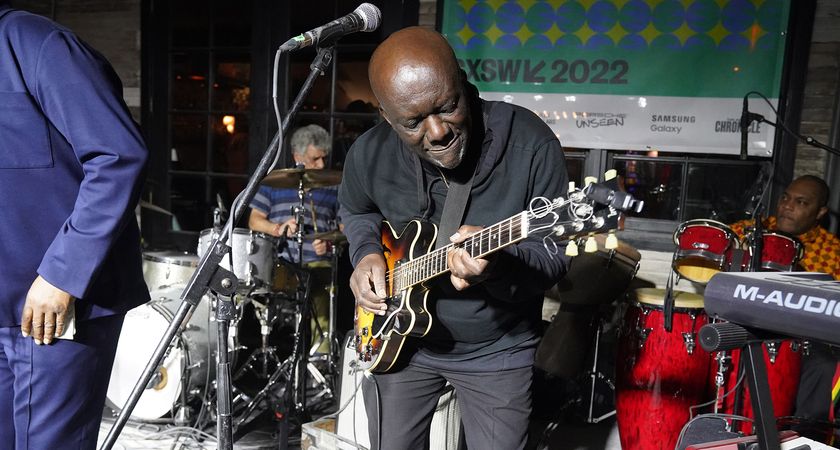
![[L-R] George Harrison, Aashish Khan and John Barham collaborate in the studio](https://cdn.mos.cms.futurecdn.net/VANJajEM56nLiJATg4P5Po-840-80.jpg)
